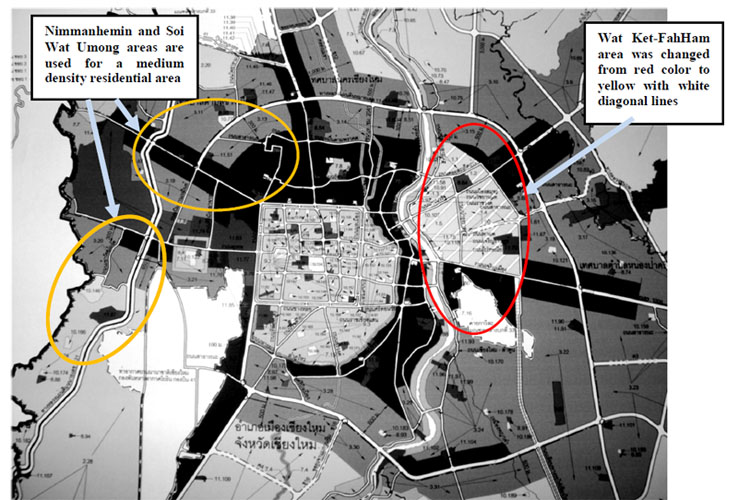The Multi-level Perspective and the Scope for Sustainable Land use Planning in Chiang Mai City
Main Article Content
Abstract
This paper examines stability and change in land use and urban planning in Chiang Mai province, northern Thailand. Inappropriate land use zoning, lack of enforcement of city planning, lack of public transportation and many unresolved problems (e.g. frequent floods, traffic congestion) are indicative of how current land use / urban planning practices have failed to lead to sustainable and desirable directions for urban development in Chiang Mai. In response, a heterogeneous coalition of actors representing various elements of strong and vibrant civil society groups have rallied around a series of issues and voice their desire for change. This has contributed to the construction of a protected space (niche) for thinking about alternative (more participatory) ways of planning with considerable momentum. This collective action has not been in vain and some of their ideas have been incorporated in the modified land use planning. In order to analyze these processes and to ‘contextualize’ the situation and ongoing land use issues in Chiang Mai, this paper uses a framework called the ‘Multi-level Perspective’ (MLP). This perspective is relatively new for the field of urban planning, but it proved to be useful for investigating stability and change in Chiang Mai city and it might be a promising framework for analyzing (sustainable) developments in urban planning and land use for other rapidly developing cities.
Article Details
Published articles are under the copyright of the Environment and Natural Resources Journal effective when the article is accepted for publication thus granting Environment and Natural Resources Journal all rights for the work so that both parties may be protected from the consequences of unauthorized use. Partially or totally publication of an article elsewhere is possible only after the consent from the editors.

